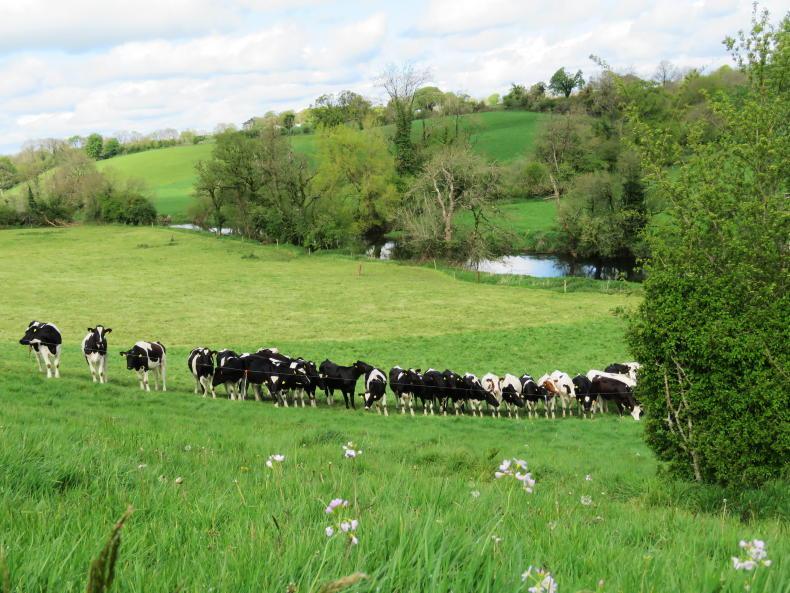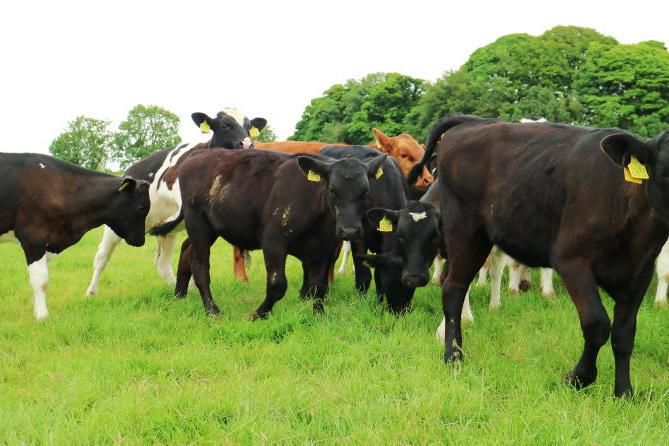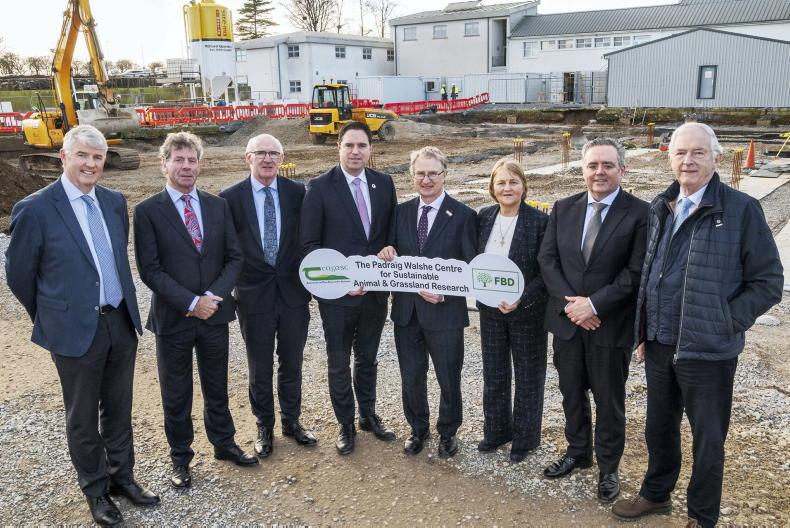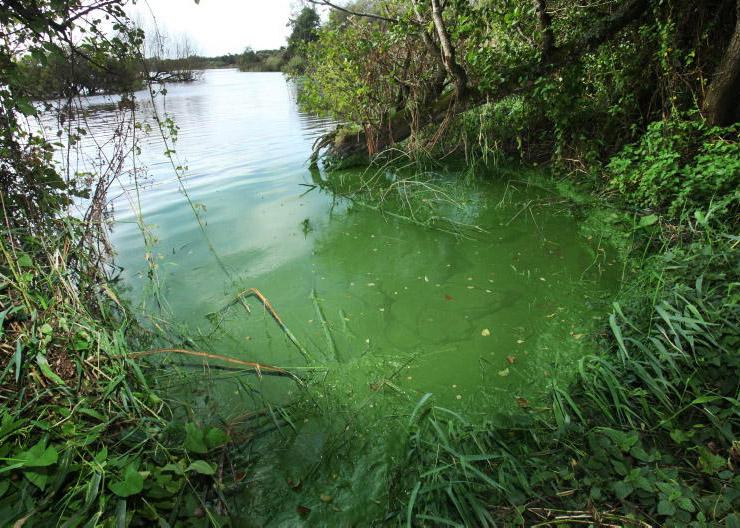Researchers have found the use of research and knowledge exchange can achieve greater uptake of farm level water quality mitigation measures to help secure an improvement in water quality.
The WaterMARKE project, funded by the Environmental Protection Agency (EPA) and the Department of Agriculture and involving researchers from Teagasc and the University of Galway, looked at ways to help reach requirements under the water framework directive.
Researchers also worked with the Agricultural Sustainability Support and Advisory Programme (ASSAP) to investigate how farmers and advisers engage with water quality improvement measures.
Head of Teagasc water quality knowledge transfer department Noel Meehan said the project identified obstacles for advisory services when providing advice and support to farmers in adopting these measures.

Agricultural activities can affect water quality when nutrients, sediments and pesticides leave the soil and enter waterways.
“The research shows that advisers also need training and upskilling in the provision of water quality advice, something that the Better Farming for Water Campaign is working to achieve with both Teagasc and private advisers,” he said.
Policy
Agricultural activities can affect water quality when nutrients, sediments and pesticides leave the soil and enter waterways.
Nutrients such as nitrogen can leach downwards through light soils into groundwater, while phosphorus and sediment can be lost through overland flow on heavy or peat soils.
Meehan added that the findings can be used to develop policies and supports for both farmers and advisers that incorporate behavioural drivers, to ensure the use of appropriate farming practices and mitigation actions that lead to positive water quality outcomes.
Findings
Local data and understanding: improving local environmental issues require localised activity data and an understanding of nutrient loss pathways. Collaboration effectiveness: the research highlights the growth in collaborations across all the ‘actors’ who can influence water quality. Farmer motivation and support: while farmers are generally motivated to improve water quality, they need support in terms of knowledge and resources. Key drivers of behaviour change include the role of advisers in raising awareness and the importance of localised support.Barriers and challenges: farmers and advisers face knowledge and technical challenges, as well as administrative burdens that carry compliance and psychological costs. Interviews show that advisers require enhanced supports to prioritise pro-environmental water quality advice. The research also highlighted the crucial role of trust in successful knowledge interventions and collaborations.Behavioural drivers: farmers with strong behavioural drivers to adopt specific measures are those who are aware of a measure, believe they have the capacity to undertake it, believe others would approve and live in areas where others have implemented the measure. Other factors that lead to greater adoption include large farm size, previous participation in agri-environmental schemes, having a point source pollution issue, engagement with advisers and agricultural education.Acceptance of measures: farmers are more accepting of measures that incur less cost and have a more immediate visible effect, such as drainage ditch remediation. Cost and incentives: the cost of implementing measures is often a negative driver. Measures with high implementation or transaction costs need to be differentially incentivised. Spatial modelling: spatial modelling highlights variation in place and farm-specific implementation costs, which must be considered when assessing appropriate measures for individual farms. Farms with high opportunity costs for loss of land/productivity may be less likely to engage with mitigation measures.Generalised behavioural model: socio-economic research shows that it is feasible to use a behavioural model that uses attributes of measures to generalise across individual measures, reducing the need to collect survey data on farmers' behavioural preferences across the full range of measures. Read more
Tirlán’s sustainable farming academy opens for applications
Investments in methane mitigation and on-farm slurry storage
Editorial: slurry management critical to protect future farmers
Teagasc appoints six river catchment co-ordinators
Researchers have found the use of research and knowledge exchange can achieve greater uptake of farm level water quality mitigation measures to help secure an improvement in water quality.
The WaterMARKE project, funded by the Environmental Protection Agency (EPA) and the Department of Agriculture and involving researchers from Teagasc and the University of Galway, looked at ways to help reach requirements under the water framework directive.
Researchers also worked with the Agricultural Sustainability Support and Advisory Programme (ASSAP) to investigate how farmers and advisers engage with water quality improvement measures.
Head of Teagasc water quality knowledge transfer department Noel Meehan said the project identified obstacles for advisory services when providing advice and support to farmers in adopting these measures.

Agricultural activities can affect water quality when nutrients, sediments and pesticides leave the soil and enter waterways.
“The research shows that advisers also need training and upskilling in the provision of water quality advice, something that the Better Farming for Water Campaign is working to achieve with both Teagasc and private advisers,” he said.
Policy
Agricultural activities can affect water quality when nutrients, sediments and pesticides leave the soil and enter waterways.
Nutrients such as nitrogen can leach downwards through light soils into groundwater, while phosphorus and sediment can be lost through overland flow on heavy or peat soils.
Meehan added that the findings can be used to develop policies and supports for both farmers and advisers that incorporate behavioural drivers, to ensure the use of appropriate farming practices and mitigation actions that lead to positive water quality outcomes.
Findings
Local data and understanding: improving local environmental issues require localised activity data and an understanding of nutrient loss pathways. Collaboration effectiveness: the research highlights the growth in collaborations across all the ‘actors’ who can influence water quality. Farmer motivation and support: while farmers are generally motivated to improve water quality, they need support in terms of knowledge and resources. Key drivers of behaviour change include the role of advisers in raising awareness and the importance of localised support.Barriers and challenges: farmers and advisers face knowledge and technical challenges, as well as administrative burdens that carry compliance and psychological costs. Interviews show that advisers require enhanced supports to prioritise pro-environmental water quality advice. The research also highlighted the crucial role of trust in successful knowledge interventions and collaborations.Behavioural drivers: farmers with strong behavioural drivers to adopt specific measures are those who are aware of a measure, believe they have the capacity to undertake it, believe others would approve and live in areas where others have implemented the measure. Other factors that lead to greater adoption include large farm size, previous participation in agri-environmental schemes, having a point source pollution issue, engagement with advisers and agricultural education.Acceptance of measures: farmers are more accepting of measures that incur less cost and have a more immediate visible effect, such as drainage ditch remediation. Cost and incentives: the cost of implementing measures is often a negative driver. Measures with high implementation or transaction costs need to be differentially incentivised. Spatial modelling: spatial modelling highlights variation in place and farm-specific implementation costs, which must be considered when assessing appropriate measures for individual farms. Farms with high opportunity costs for loss of land/productivity may be less likely to engage with mitigation measures.Generalised behavioural model: socio-economic research shows that it is feasible to use a behavioural model that uses attributes of measures to generalise across individual measures, reducing the need to collect survey data on farmers' behavioural preferences across the full range of measures. Read more
Tirlán’s sustainable farming academy opens for applications
Investments in methane mitigation and on-farm slurry storage
Editorial: slurry management critical to protect future farmers
Teagasc appoints six river catchment co-ordinators










SHARING OPTIONS